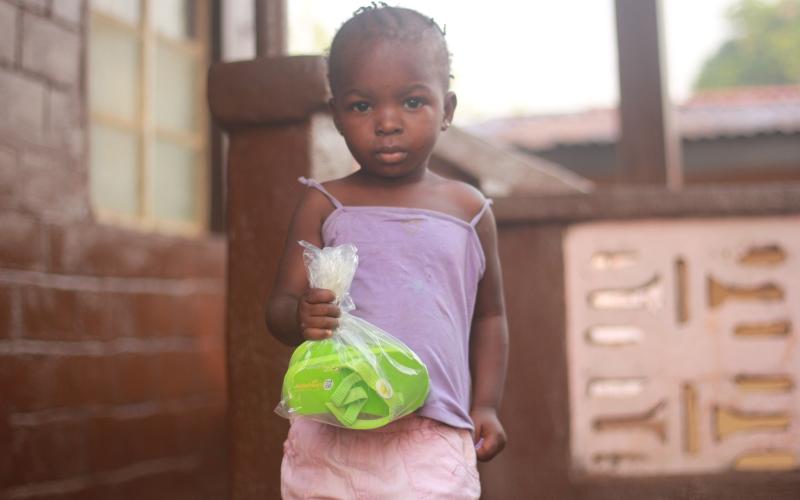
An African child dies every 35 seconds from pneumonia [1,2]. Every minute one child dies from malaria [3], one child dies from measles [4], and six children die from pneumonia or diarrhea [2]. As of 2013, the World Health Organization (WHO) estimates five children under the age of five die every minute in the African region [6]. Preventable deaths rank highest on the list of ‘under five’ childhood killers in Africa.
Facing the possibility of pneumonia, diarrhea, malaria, malnutrition, measles and HIV, a newborn’s challenges already seem difficult. Add neonatal complications like infections, perinatal asphyxia, preterm birth and low birth weight and these challenges seem overwhelming. Children are struggling to build an immunity amidst poverty, poor dietary conditions, overcrowding, lack of health care access, and poor infrastructure just to mention a few. These children are born in turbulent climates and their struggle for survival weighs heavy on their young shoulders.
Sub-Saharan Africa alone has 11% of the world population but accounts for 50% of childhood mortality [7]. For African children under age five, 45% mortality occurs in the first month of life, and 75% occur in the first week [8,11]. This burden falls on the region with the lowest density of health care workers [7].
Malnutrition is the underlying cause of death in an estimated 45% of all deaths among children under five years of age [9,11]. The single most important determinant of under-five survival is socioeconomic status, which begs the question-do I have a role to play? Can I shoulder part of these survival struggles? Children of educated mothers—even mothers with only primary schooling—are more likely to survive than children of mothers with no education [10]. Children born into poverty are two times more likely to die before the age of five compared with those from wealthier families [10].
Globally, 5.9 million children under five years of age died in 2015, translating to 16,000 every day [13]. The risk is highest in the African region which is about seven times that of the European region [13]. Community interventions such as the Expanded Program on Immunization (EPI) have the highest impact on increasing childhood survival chances but are given lowest priority [12]. Sadly, the set-up of most of the African health system allocates their limited resources to favor facility based curative care consumed mainly by less necessary recurrent expenditure.
Increasing childhood survival chances, therefore, requires a cooperative multi-sectoral approach which includes but is not limited to:-
- Health workers must be on top of their game
- Continuous education to influence healthy decision-making
- Encourage tested and trusted programs such as the EPI and Antenatal Clinic attendance
- Political will to combat childhood mortality
- Creation of jobs to improve socioeconomic status
- Health insurance for all to increase accessibility and affordability of health care
Image by Bread for the World - No affiliation with Develop Africa - Used under terms of Creative Commons License - Image has not been modified from its original form - https://www.flickr.com/photos/breadfortheworld/22387615287/in/photolist-6sCXdR-9jfQiB-bSQKyk-Lcpzbw-Lcpz5u-A7jo42-ALgYMx-zNp6kX
REFERENCES
1) https://www.unicef.org/health/index_91917.html
4) https://www.unicef.org/immunization/index_why.html
5) https://www.unicef.org/mdg/childmortality.html
7) https://www.ncbi.nlm.nih.gov/pmc/articles/PMC2888581/
8) Retrieved from https://www.ncbi.nlm.nih.gov/pmc/articles/PMC4368095/
9) http://www.who.int/mediacentre/factsheets/fs290/en/
10) http://www.un.org/sustainabledevelopment/health/
11) http://www.who.int/mediacentre/news/releases/2015/child-mortality-report/en/


